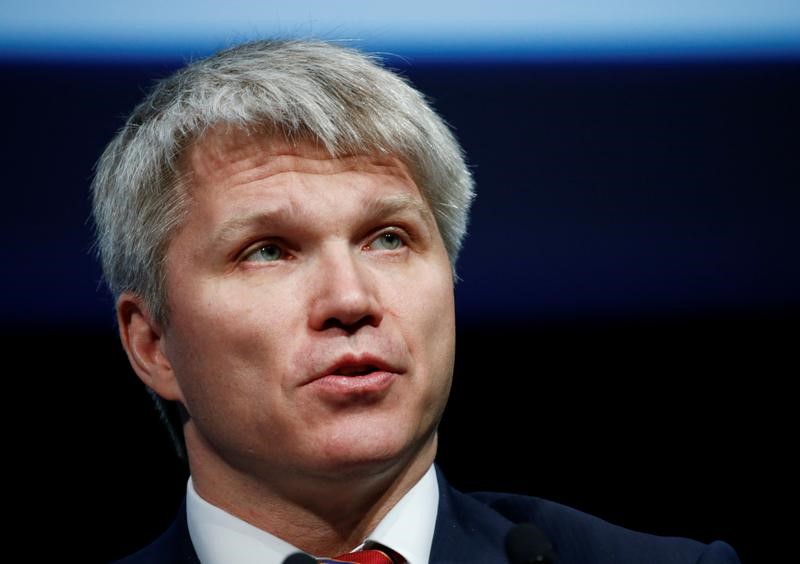MOSCOW (Reuters) - Russian Sports Minister Pavel Kolobkov said on Monday that local athletics federations working with coaches and doctors banned for doping could be punished.
Reuters revealed last week that two Russian athletics coaches and one doctor banned for doping are still working with athletes.
One of the coaches, Vladimir Mokhnev, was seen last month training athletes in Kursk, a city about 500 km (300 miles) south of Moscow.
In response to Reuters questions, the local athletics federation in Kursk said there was little it could do to stop Mokhnev working with athletes.
Kolobkov told a news conference in Moscow on Monday that local athletics federations working with banned personnel could be stripped of their accreditations.
"We are probing each individual case," Kolobkov said in comments carried by the Interfax news agency. "We will complete this investigation by the end of the month."
Global athletics' governing body, the IAAF, on Sunday extended a ban against Russia's athletics federation preventing Russian track and field athletes competing at international level and said Reuters' findings would be investigated.
Reuters also found that Valery Volkov, another Russian athletics coach serving a doping ban, was still working with athletes at a university in Moscow.
Athletes must not receive training, strategy, nutritional or medical advice from banned coaches or medical staff and can face sanctions if they do, according to World Anti-Doping Agency (WADA) rules.
Russia's athletics federation was suspended in November 2015 after a report commissioned by WADA found evidence of widespread doping in the sport.
Russian authorities have denied the existence of a state-sponsored doping program but have accepted that some senior officials were involved in providing banned substances to athletes, interfering with anti-doping procedures and covering up positive tests.

Despite the ban against Russia's athletics federation, some Russians – including 2015 world champion hurdler Sergey Shubenkov – have been cleared to compete internationally after providing evidence that they train in a doping-free environment.